The aim of the event was to highlight the opportunities, challenges and strategic choices that Greece and Europe are required to receive in order to ensure a human, democratic and innovative digital future. The event was framed by four thematic panels that covered AI’s productive utilization in the economy, the digital transformation of education, AI applications in diagnosis, prevention and treatment in health as well as the emerging Greek innovation ecosystem and the startups of the space.
The event took place on Saturday, June 14, 2025 in the EBEA Hall of the EBEA, entitled: “Greece and the EU. In the Age of Artificial Intelligence ‘which was organized on the initiative of the New Democracy MEP, Dimitris Tsiodra.
To the theme for the economy The Minister of Finance participated Kyriakos PierrakakisEmeritus Professor of NTUA and President of EYTHE Crown and the Director of the Institute of Informatics and Telecommunications of NCSR “Democritus” Vangelis Karkaletsiswith the discussion coordinator Dimitris Tsiodra.
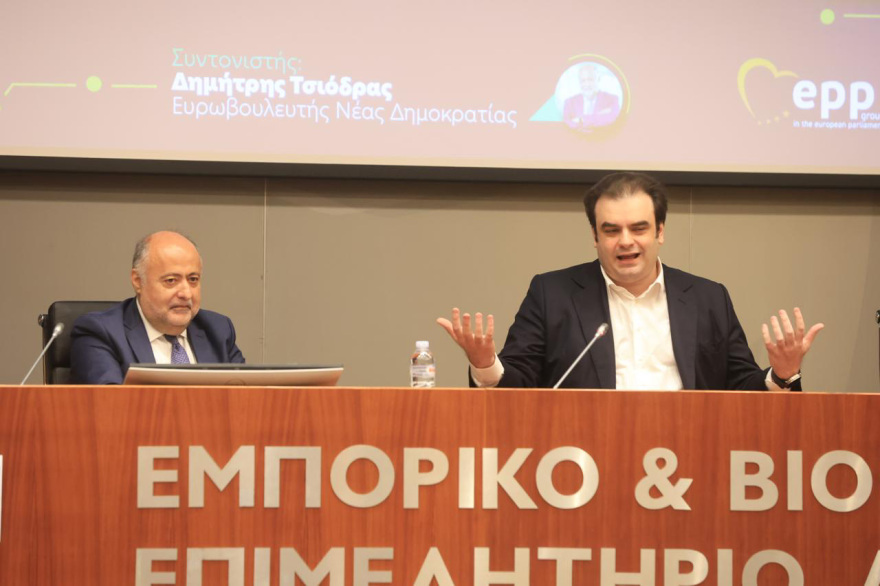
To the panel for the Educationthe Minister of Education gave the present Sofia ZacharakiPresident and Vice -President of the National Committee of Bioethics and Technology Charalambos TsekerisProfessor of Economics University Christos Tarantilis and the founder and CEO of 100mentors George Nikoletakis. Coordinator was the president of UNNED, lawyer Orpheus Georgiou.
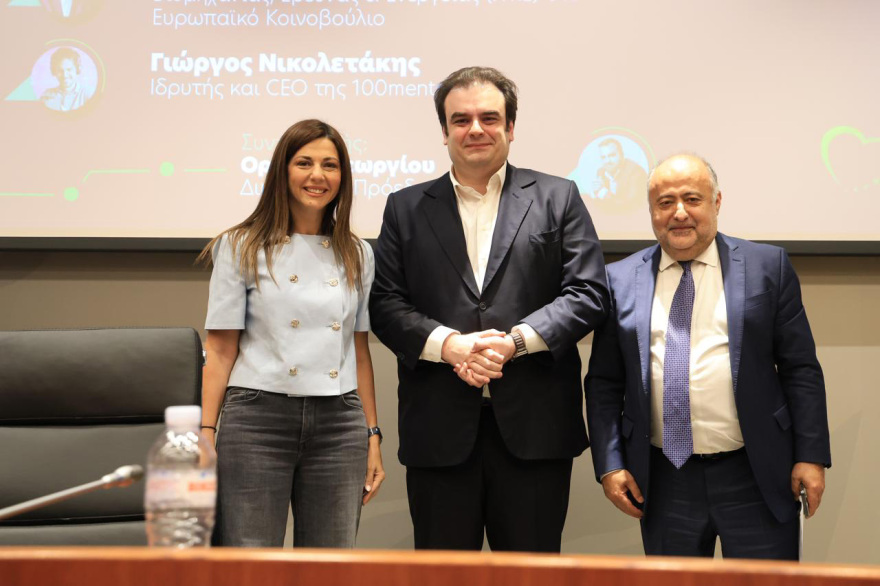
The Minister of Health Adonis Georgiadis opened the discussion to the topic of the Health which was co -ordinated by the Treasurer of PIS, Doctor Vassilis Psychogios while participating in this Ismen President of the National Authority Medically Assisted Reproduction, the Vice -Rector of Research and Innovation of the NCSR Stathis Efstathopoulos And the scientific director in “Eugenia”, Dr. George Lainas.
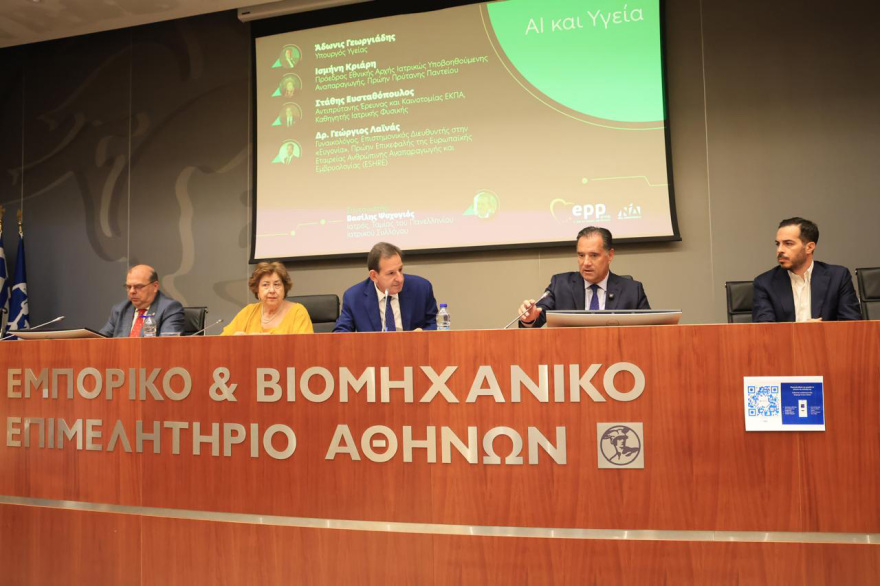
To the panel for the Artificial intelligence In the Greek landscape co -ordinated by Capital.gr director, journalist Spyros Dimitrelis The director of the Archimedes Research Unit were placed Spyros Sellisthe founder of JOIST Innovation Park Tasos VassiliadisPrisma Electronics Corporate Relations Officer Dimitra Marina YordamliChief Innovation Officer of Space Hellas Sotiris Karagiannis And the co -founder and CEOTI EVENLY Panagiotis Konstantinidis.
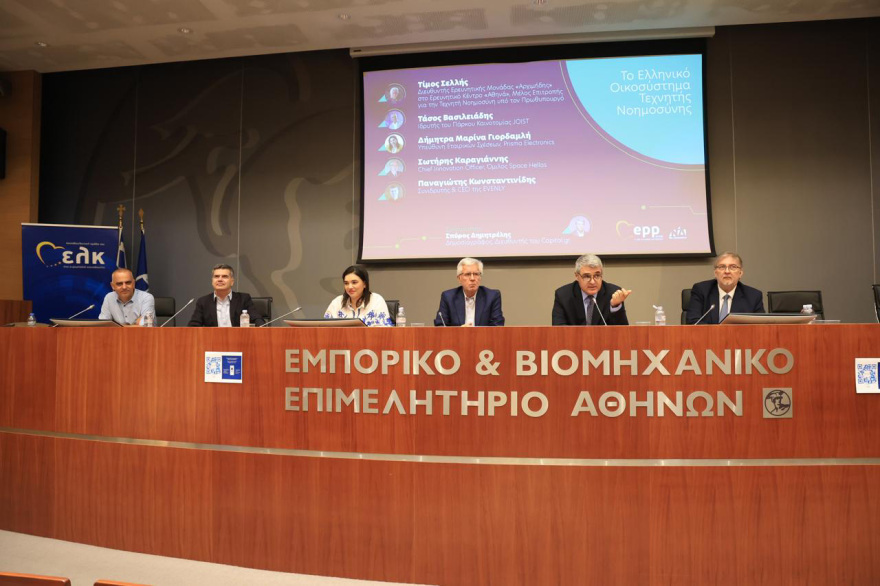
In his interventions, the Minister of Finance Kyriakos Pierrakakis Among other things, he stressed that artificial intelligence is already shaping the world around us, forming the basis for the next phase of productivity and social evolution. It said now, it is not if we will adopt it, but how we will integrate it in terms of justice, transparency and social benefit. Greece does not stay behind.
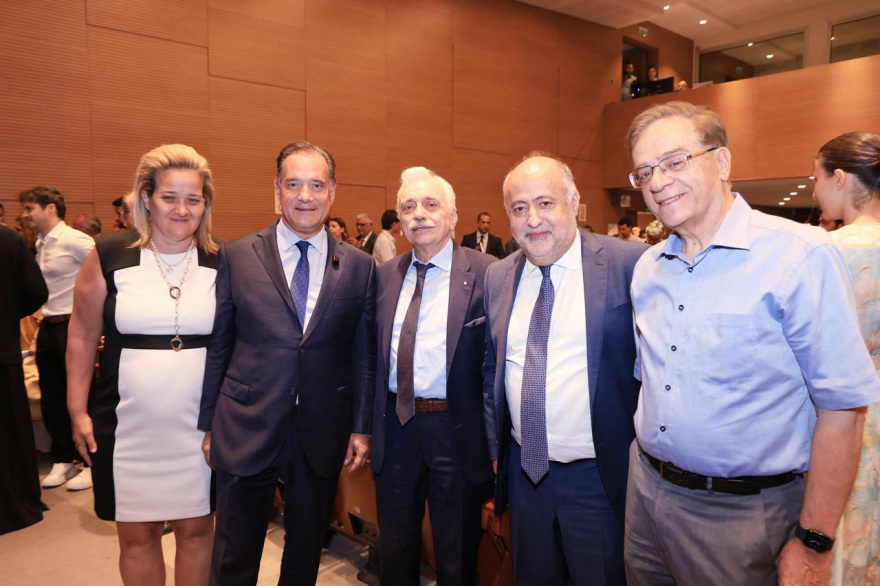
With an integrated national strategy for artificial intelligence, the government sets the principles: moral use, innovation, social responsibility. Through the Recovery Fund, more than 600 million euros were secured for projects incorporating AI into public administration, health, education and tax policy. The strengthening of AADE with artificial intelligence tools to prevent tax evasion and the creation of national data infrastructure, which ensures interoperability and security. At the same time, digital training programs are being developed with a view to 150,000 citizens and professionals to acquire relevant skills by 2026.
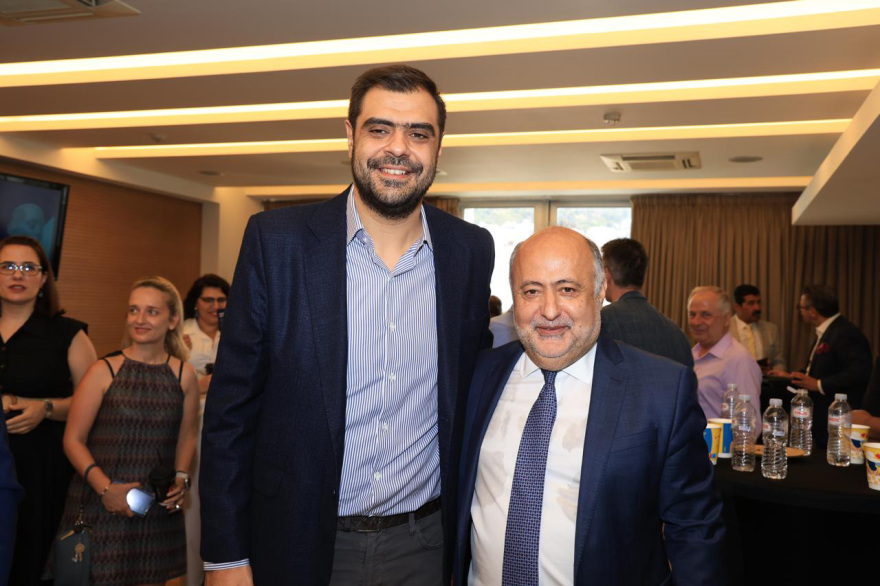
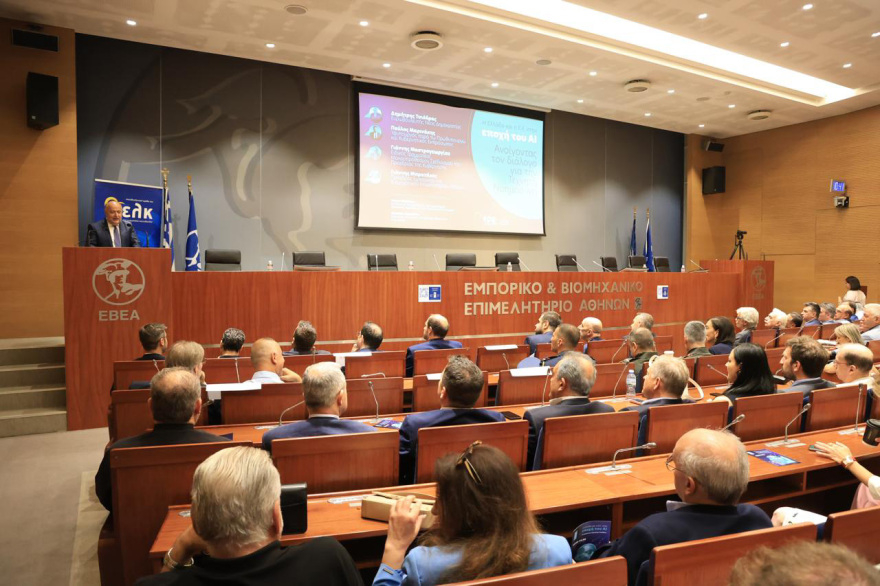
Establishing nodes such as “Demokritos Ai Hub” brings research with entrepreneurship, enhancing the innovation ecosystem. AI acts as a lever for reforming acceleration: it reduces bureaucracy, improves public administration, strengthens targeted social policies. But the challenge is also political: it is about equality, data protection and fair distribution of wealth.
The vision, Mr Pierrakakis concluded, is clear: Greece to become a reliable, human AI hub in the Balkans. Because artificial intelligence is already present – and time to form it, it is now. “
The Minister of Education Sofia Zacharaki He presented the strategic plan to integrate artificial intelligence into education, stressing that it is not a threat, but a tool that enhances learning and reduces inequalities. The aim is to utilize AI with responsibility, human approach and equal opportunities for all. The central innovation is the digital tutorial, which is already piloting for students in the 3rd grade. It offers free interactive courses, even in meaning, utilizing AI for personalized support. The action is part of the broader “Digital School 2” program, which includes augmented reality applications, interactive tests, holograms and smart learning platforms tailored to each student’s needs.
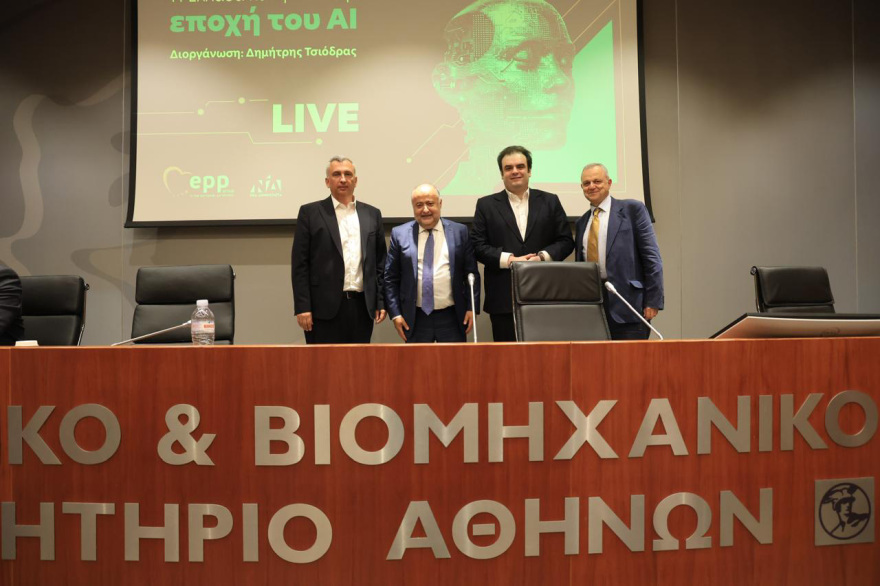
The minister clarified that technology does not replace the teacher, but reinforces his work, giving him more time for meaningful contact with students. In the career orientation, AI tools are piloted to help students discover their interests and skills critical axis is training: Over 155,000 teachers will have been trained in AI use by the end of 2025. At the same time, the teaching of computing and the teaching of computing.
In closing, Ms Zacharakis spoke of a child at a special school in Penteli who first actively participates through AI tools: “This is the future – artificial intelligence as a bridge of integration.”
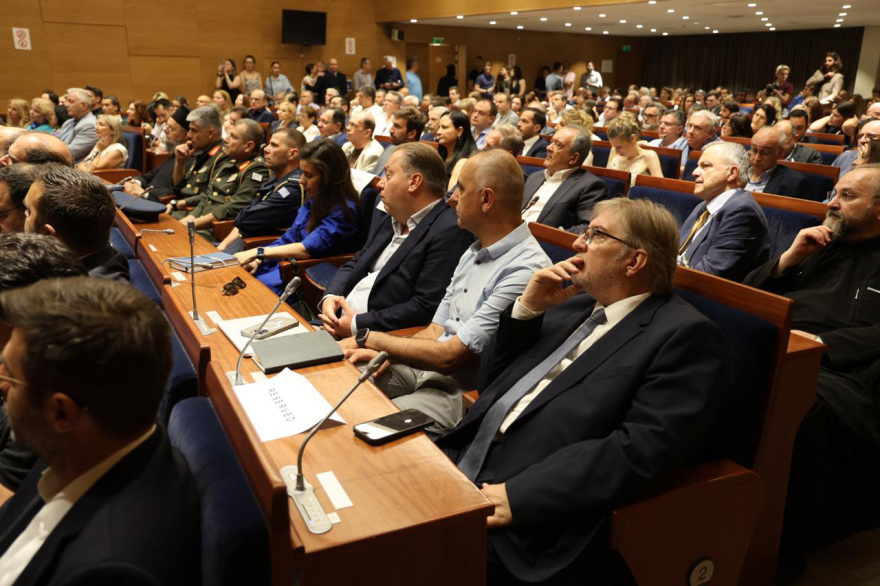
“Technology radically transforms the health field, at rates of unprecedented,” the health minister underlined Adonis Georgiadis As artificial intelligence, data management and automated systems do not only change the way the services work; but redefine the entire ecosystem of care. Greece, the minister said, “for the first time, does not follow the developments. It is ahead – along with countries such as Estonia and Finland – and utilizes its digital leap as a competitive advantage. “
Mr. Georgiadis also said that:
Electronic prescription is already universally applied (100%), compared to just 17% in Germany, while the National Electronic Health File is already operating and will cover the entire population by early 2026. Citizens have access to their medical information, from medicines to imaging tests, and they will be able to seek a second opinion remotely.
At the same time, the integration of artificial intelligence into daily medical practice is proceeding: From voice prescription that reduces errors and bureaucracy to front -line call centers, where the “answering machine” is now reinforced by AI. Pilotes are already being applied, an emergency management system, which evaluates patients before they even reach the hospital, giving instructions or even a distance prescription.
And the Minister of Health added: “Digital health is not just a technological innovation. It is a tool of social equality: the doctor in a remote area will have the same data and tools as a doctor in a large urban center.
At the same time, he pointed out that investment giants, such as Pure Health from the United Arab Emirates, are choosing to invest in Greece, recognizing the potential of the Greek health system, concluding: “Within less than five years, the health world will not be the same. The challenge is huge. But even greater is the opportunity – to shape a sustainable, quality and democratic health system for all. “
At the meeting, the Deputy Minister was also given by the Prime Minister under Paul Marinakis who stood the responsibility of politics to manage major technological changes with seriousness and institutional maturity: “It is not enough to say ‘yes’ to technology, he said. We have to say how to make it an ally. How to strengthen and not threaten public university, quality of life, social cohesion. It’s not just technology – it’s values. “
ND MEP Dimitris Tsiodras referred to discussions on artificial intelligence in the Committee on the Industry, Research and Energy of the European Parliament in which he is a member of the ND.
“The EU has a great debate and decisions are made to cover lost ground compared to the US and China. Technological progress can be neither blind nor neutral. He must serve man, strengthen democracy and support social cohesion. Greece has the potential to be a co -sharing of developments, not just the recipient of them, “and closed the workshop by inviting all bodies to work consistently and cooperation:” Artificial intelligence is not just a challenge. It’s an opportunity. And Greece has human resources, structures and political vision to lead the new European landscape, “the ND MEP concluded.
